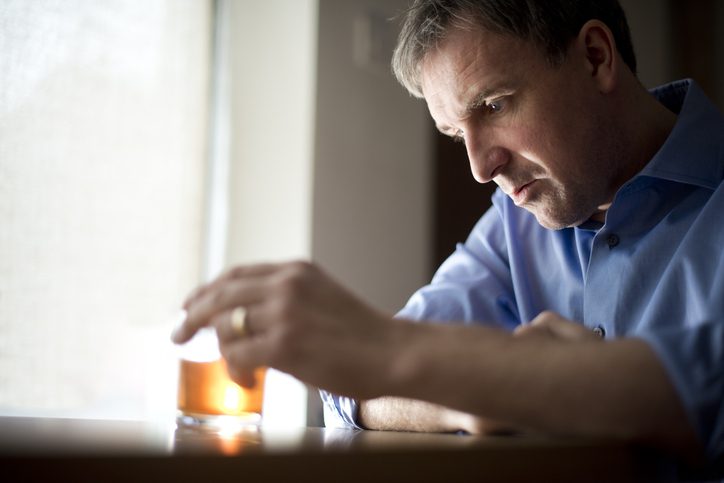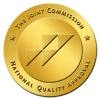Has drinking to take the edge off become part of your nightly routine? For millions of people battling depression, alcohol shows up like an old friend offering comfort—but this friend has a dangerous hidden agenda.
That glass of wine or beer might feel like a warm embrace after a tough day, but it’s actually more like quicksand—the more you lean on it, the deeper you sink.
10 Reasons Why You Won’t Find Answers at the Bottom of a Bottle
If you’re already experiencing depression, drinking doesn’t just fail to help—it actively compounds the problem. Let’s take a look at some of the sneaky ways alcohol abuse can make it more difficult to manage your mental health.
- Drinking Numbs Emotions but Prevents Healing
Depression is often accompanied by difficult emotions, such as sadness, hopelessness, or guilt. Alcohol may seem to dull these feelings in the moment, but it also prevents you from processing them in a healthy way.
- Drinking Damages Your Relationships
Alcohol often drives a wedge between you and your support system. You might cancel plans, withdraw from loved ones, or find yourself in conflicts fueled by drinking. Over time, this can deepen your feelings of loneliness.
- Drinking Contributes to Risky Behaviors
Alcohol impairs judgment and lowers inhibitions, leading to actions such as impulsive spending, reckless driving, unsafe sex, or even self-harm. The consequences of these risky behaviors can have a ripple effect that makes your depression harder to manage.
- Drinking Disrupts Your Brain Chemistry
Alcohol disrupts the delicate balance of serotonin and dopamine in your brain. These neurotransmitters play a key role in regulating your mood. This imbalance can make your depression symptoms more difficult to keep in check.
- Drinking Makes Antidepressants Less Effective
If you’re taking antidepressants, drinking can interfere with their effectiveness. Alcohol may reduce the medication’s ability to work properly or intensify side effects like drowsiness, dizziness, or agitation.
- Drinking Can Cause Physical Health Issues
Alcohol use takes a toll on your body. Drinking can lead to fatigue, poor nutrition, and weakened immunity, which can make it harder to find the energy to address your mental health. Alcohol-related medical conditions can also cause pain and physical limitations that negatively affect your overall quality of life.
- Drinking Triggers Guilt and Shame
Many people with depression already struggle with feelings of guilt and self-blame. When drinking leads to behaviors you regret—like snapping at a loved one or skipping work—it can deepen these feelings. Over time, you can start to feel like you don’t “deserve” to be happy.
- Drinking Zaps Your Motivation
Alcohol may initially seem like a quick fix for stress or sadness. However, it can leave you feeling unmotivated and sluggish the next day—so you’re less likely to engage in activities that bring a sense of joy or contentment.
- Drinking Increases Suicidal Thoughts
Alcohol lowers inhibitions, intensifies feelings of hopelessness, and impairs judgment—which can make a crisis feel insurmountable in the moment. A 2022 review of 33 studies examining the link between alcohol and suicide found that alcohol use was associated with a 94% increase in the risk of death by suicide.
- Drinking Creates a Cycle of Dependence
Each time you turn to alcohol for relief, your brain learns to associate drinking with coping—making it harder to face life’s challenges without a drink in hand. Soon, what started as an occasional escape can become your brain’s default response to stress, sadness, or even minor frustrations.
Get the Support You Need to Move Forward
Depression and alcohol use disorder often go hand in hand. This is referred to as a dual diagnosis. Effective treatment addresses both conditions simultaneously, helping you understand how they interact and providing strategies to manage each.
At Eagle View Behavioral Health in Bettendorf, Iowa, we offer a dual diagnosis intensive outpatient program (IOP) that includes:
- Individual and group therapy. Therapy gives you a safe space to explore the underlying causes of your depression and drinking. Cognitive behavioral therapy (CBT) and dialectical behavior therapy (DBT) are particularly beneficial because they help you identify and change thought patterns that fuel both depression and alcohol use.
- Holistic wellness. We believe in treating the whole person, not just symptoms. Our program includes mindfulness training, stress management techniques, nutrition counseling, and gentle exercise programs to help you build a foundation for lasting recovery.
- Family support and education. Strengthening your support system is crucial. We’ll help family members better understand your condition and what they can do to assist in your recovery efforts.
- Medication management. We can help you find medication that works for your unique needs and determine a dose that reduces the risk of side effects.
- Care coordinating and discharge planning. We work with you to develop a comprehensive aftercare plan that includes connection to local support groups, ongoing therapy referrals, and strategies for maintaining sobriety while managing your depression.
Every journey to recovery starts with a single step. Contact us today for a free, confidential assessment.







